How Long a Broken Nose Takes To Heal – My Experience
This March, I am joining in again with the monthly writing prompts from Sheryl at A Chronic Voice. It’s been over a year since I last joined in as I’ve been focused on writing my new coaching journal which you can buy now on sale for £26.99 in my Lulu bookstore.
I was going to write about that but I broke my nose and it has taken over everything so I decided to use these March prompts: Dealing; Thinking; Reacting; Experiencing; Viewing, to tell you about breaking my nose.
Dealing
I’ve been dealing with a broken nose since Saturday 4th March. I recognised nearly all of the following broken nose signs, as shown on this Mayo Clinic website.
– Pain or tenderness, especially when touching your nose
– Swelling of your nose and surrounding areas
– Bleeding from your nose
– Bruising around your nose or eyes
– Crooked or misshapen nose
– Difficulty breathing through your nose
– Discharge of mucus from your nose
– Feeling that one or both of your nasal passages are blocked
I felt I needed urgent medical care as the bleeding wasn’t stopping and I had a noticeable change in the shape of my nose. I was also worried that I may have a head or neck injury.
The trauma happened because I have to deal with some strange symptoms linked to my brain being under pressure due to my Idiopathic Intracranial Hypertension (IIH), explained in this blog.
One of the main symptoms I deal with is poor balance and I walk like I’m drunk, especially on high pain days. This has led to reduced mobility and I need walking aids and a wheelchair for distances longer than the length of a bus.
I’d been dealing with a flare-up and had been in bed for two weeks but I had had a lower pain day so decided to go downstairs for a change of scenery and to be with my husband Joel. When I stood up from the sofa to go up to bed, I struggled to steady my feet but I didn’t notice. I went to take a few steps but I fell over my own feet and landed face down, smashing my face on a low cupboard.
Joel was still in the room and as the blood started pouring he jumped up to help. He managed to stay calm as he dealt with the copious nosebleed and blood from the cut on my nose. He helped me get to the car and drove me to the hospital.
Thinking
It was a painful and traumatic experience, which has left me thinking about the incident over and over in a loop. I’ve only been downstairs a couple of times since as it’s affected my confidence and I’m overthinking taking the smallest steps.
I’ve also been thinking about my experience with the A&E Doctor as he made me feel uncomfortable when I was in the consultation room. When I explained what had happened he seemed puzzled that I was in my wheelchair but had fallen because I’d walked a few steps unaided.
This article explains that about ⅓ of wheelchair users in the UK are ambulatory, meaning they need to use a wheelchair but can walk in some circumstances, as I do. All NHS doctors must see ambulatory wheelchair users in hospital but it seemed to be an issue for this particular doctor.
He then tried to blame my lack of balance on the strong medication I take and I couldn’t help thinking that he was judging me. I explained that I fell just as much before I was on these medicines but I don’t think I should have to justify this.
I understand that IIH is rare and that most NHS doctors know little about it. However, I knew that this accident was due to my IIH and I just wish that more doctors would trust that I know my body after 9 years of living with this condition.
I spoke to Joel the next day about how the doctor had made me feel as he hadn’t really thought that the doctor was using ableist language as it was subtle. When I explained what I was thinking about what this doctor had said and how it made me feel, Joel was better able to understand my position.
Reacting
The way we reacted to the initial incident was calm and considered. Looking back I see that adrenaline played a big part of that. We were reacting in the moment but we knew that I needed ice and to pinch my nose to stop the bleeding.
You must go to the minor injuries unit or A&E if you have broken nose signs, such as these on this NHS a website:
– your nose is crooked (not straight) after the injury
– the swelling has not started to go down after 3 days
– painkillers are not helping
– you’re still finding it difficult to breathe through your nose after the swelling has gone
– you’re having regular nosebleeds
– you have a very high temperature
If you think you have the signs of a broken nose you need to assess the extent of your injury to react appropriately. When you do see a Doctor they will determine the extent of the injury and react to your needs based on that assessment.
After the initial incident, I kept checking how my face looked. I had a strong reaction about how I looked when the swelling got worse but this changed daily. However I didn’t react badly to the kink in my nose as I knew they would probably reset it.
Experiencing
My next experience with NHS doctors was so different. I saw a lovely junior doctor in the ENT department about having my broken nose fixed. He listened to me and was understanding about my disability, even wanting to know more about my IIH treatment so far, like I describe in this blog, as it’s such a rare condition.
He did struggle to feel the break as there hadn’t been enough time for the swelling to go down so he got a second opinion. The more senior doctor confirmed I had a broken nose and deviated septum and was sure I should have the procedure.
I was told that the broken nose fix was cosmetic so I had to decide whether to go through this quite traumatic experience. I had to have 5 injections around the nose as I was still feeling some pain after the 3 injections the doctor said I would need.
The doctor applied a lot of pressure to my broken nose as I experienced how to fix it. A lovely nurse held my hand and reminded me to breathe throughout. They were both impressed by how I’d handled the pain which I explained was due to experiencing constant pain for 9 years.
I immediately felt like I could breathe more normally, which I hadn’t realised was a problem until then. This is important as it’s one of the broken nose signs that means the nose needs fixing for more than cosmetic reasons. The doctor was happy with how easily it had gone back into place and I was relieved the experience was over.
Viewing
Now nearly 2 weeks after the procedure I am starting to get back to my normal. I’m still in pain and have some swelling and bruising so I’m viewing this as healing time. As I wondered how long it takes for a broken nose to heal, I found out that it takes anywhere from 3-6 weeks.
It was a nasty, traumatic event so it’s now about viewing my mobility with a little more care to rebuild my confidence to move unaided for short distances in the house. I’m nervous on my feet so I will need to be patient with myself when getting up as I don’t want to have another incident like this.
This fall affected my face and neck where my normal IIH pain is. However, after the immediate agony of the incident, from my perspective, it’s not anywhere near the pain I experience on my worst days as these leave me unable to move.
In A&E, I was given a dose of oramorph because of the pain relief I already take. Viewing the pain on a typical pain scale, it was initially an 8/10 which is the same as my normal bad days. But it’s been 6 or 7 out of 10 most days so I’ve used paracetamol for my pain.
A broken nose will fix itself in 3-6 weeks. You should use ice and over the counter painkillers as I have. You must not ever try to straighten your nose yourself. In some cases people need surgery to fix their nose, so I am definitely viewing my treatment with a positive outcome as it could have been worse.
#block-ece1e01daecbaa71dfd5 .sqs-gallery-block-grid .sqs-gallery-design-grid { margin-right: -20px; }
#block-ece1e01daecbaa71dfd5 .sqs-gallery-block-grid .sqs-gallery-design-grid-slide .margin-wrapper { margin-right: 20px; margin-bottom: 20px; }
✋ Hey there! I hope you’re feeling stronger now. If so, sharing the love will help me help other mums with chronic invisible illnesses.⬆ Hit one of those sharing buttons or save these images to Pinterest and I will do a bed-bound happy dance – there’s an image for you!
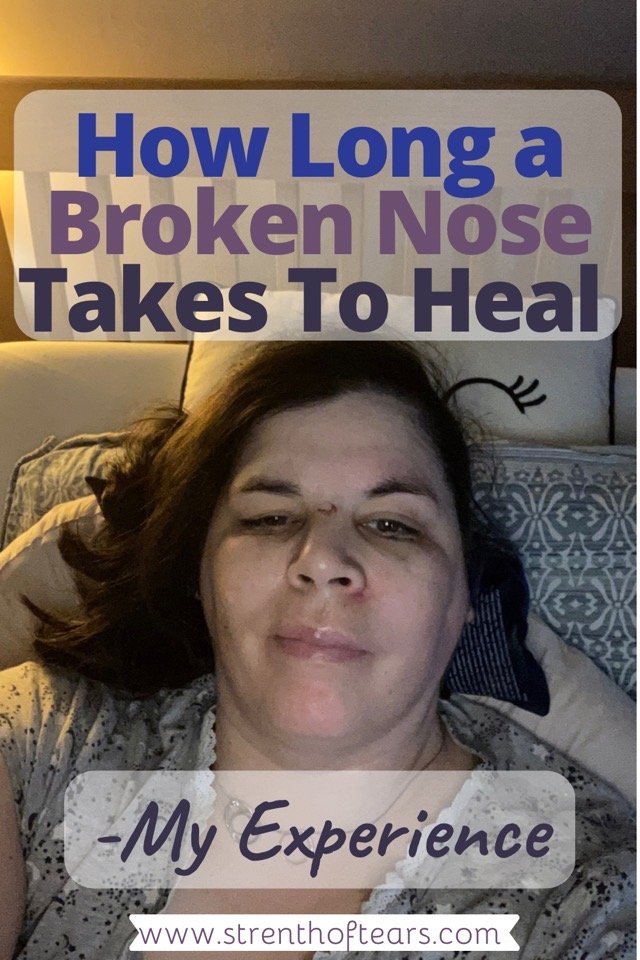

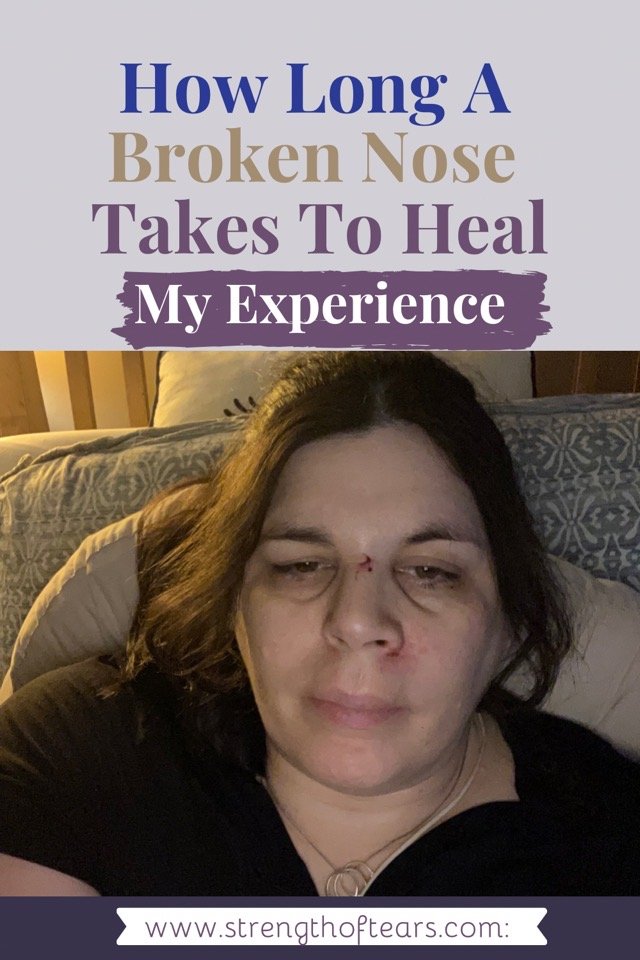
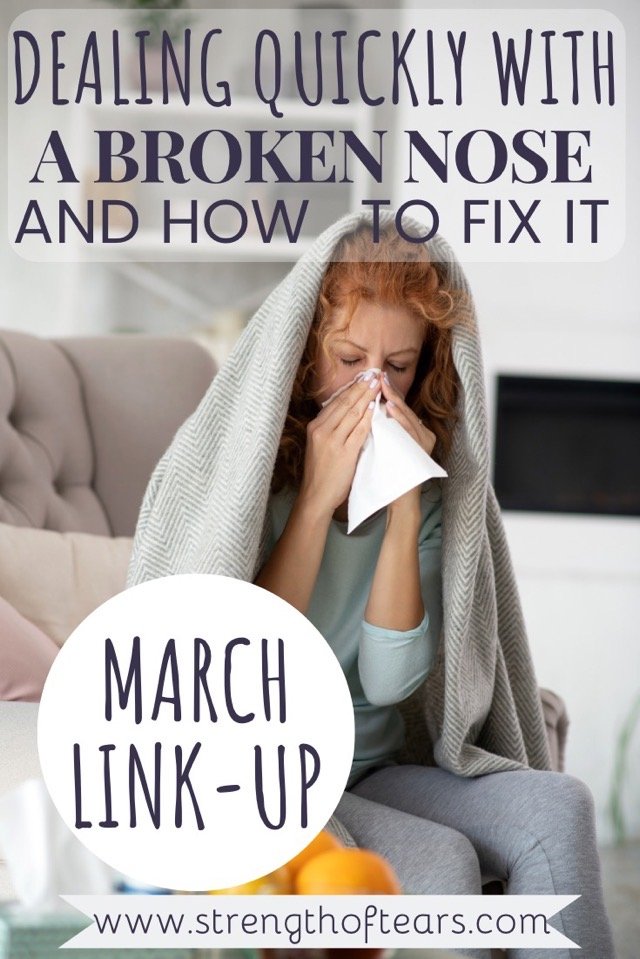
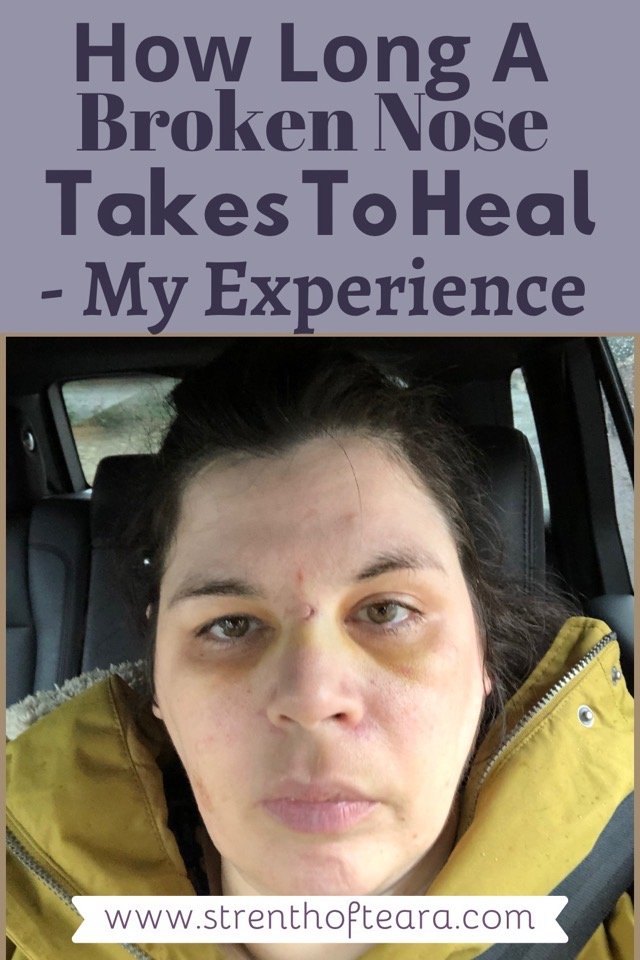
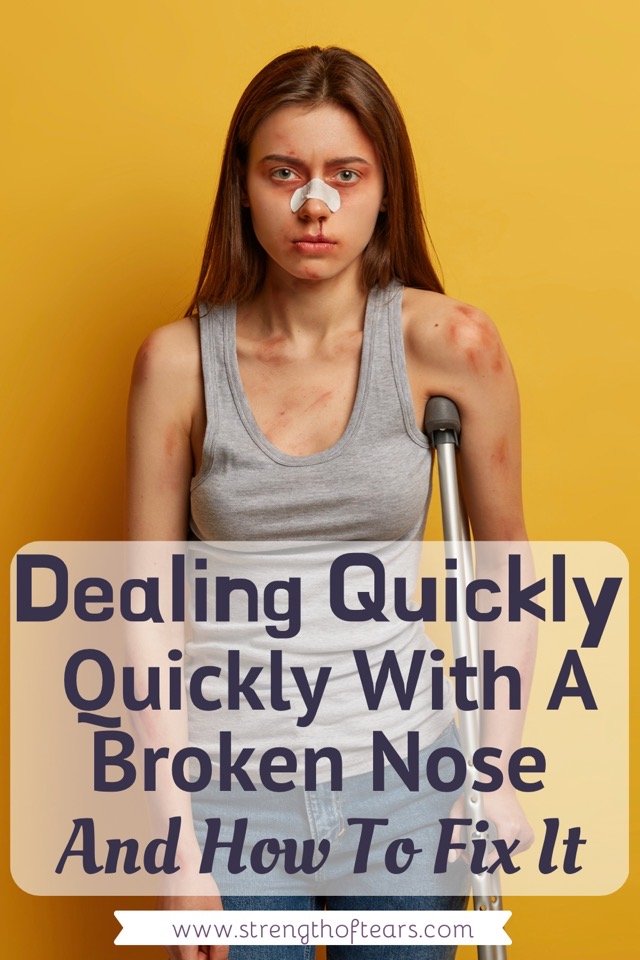
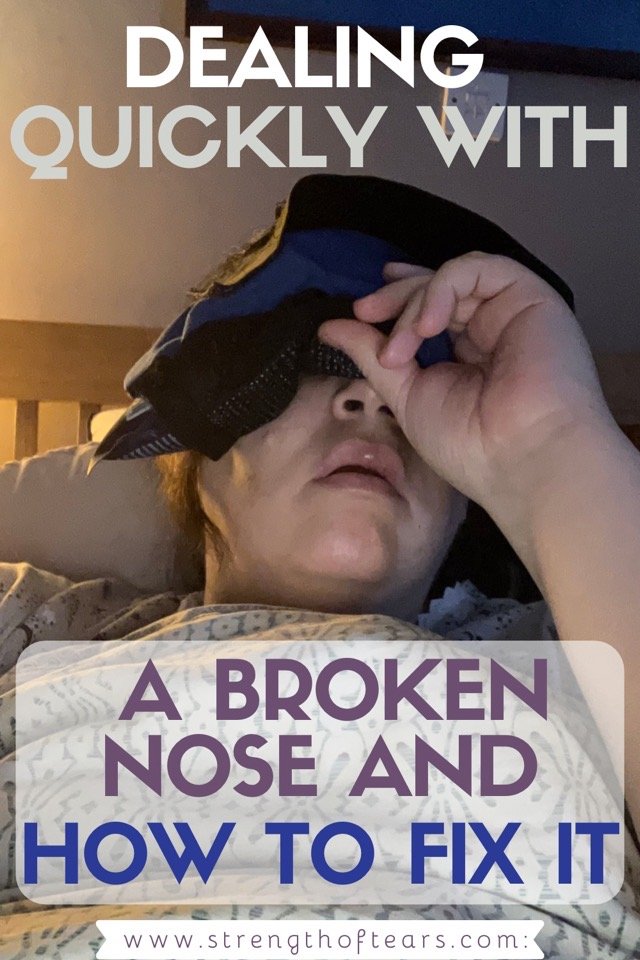
Leave a comment